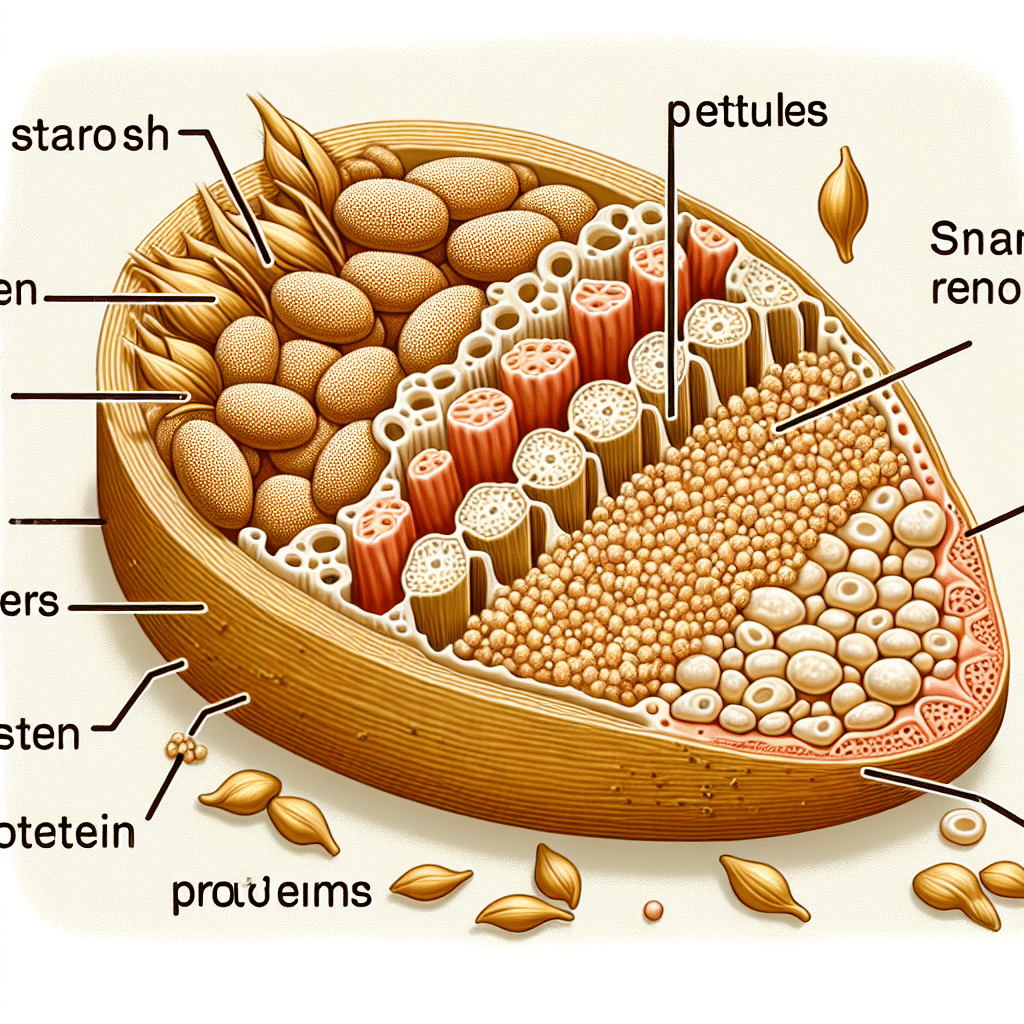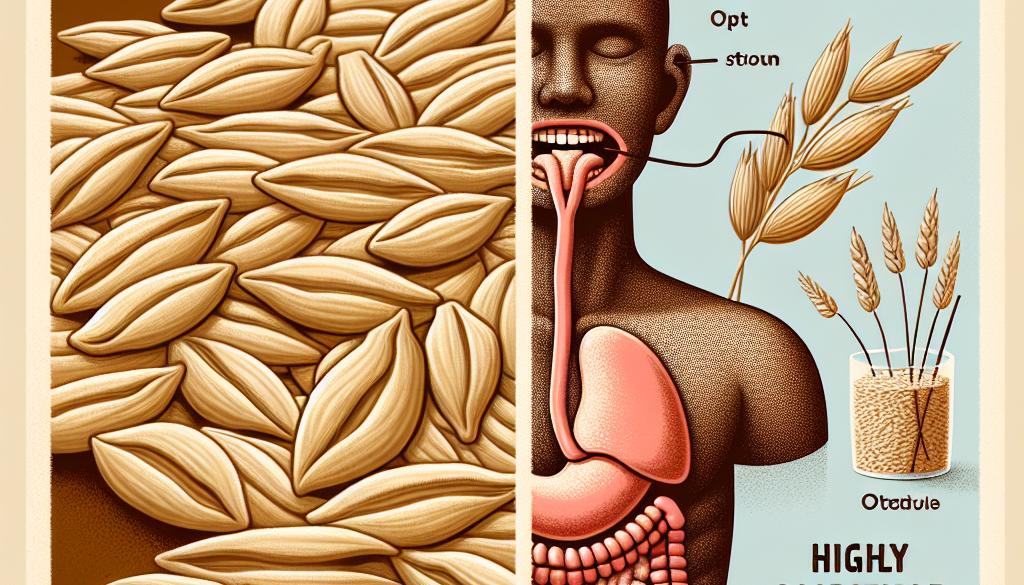How Digestible Is Oat Protein?
-
Table of Contents
- Oat Protein Digestibility: A Comprehensive Analysis
- Understanding Protein Digestibility
- Nutritional Profile of Oat Protein
- Factors Affecting the Digestibility of Oat Protein
- Comparing Oat Protein to Other Protein Sources
- Benefits of Oat Protein
- Case Studies and Research on Oat Protein Digestibility
- Conclusion: Key Takeaways on Oat Protein Digestibility
- Discover ETprotein’s High-Quality Protein Products
Oat Protein Digestibility: A Comprehensive Analysis

Protein is a crucial macronutrient in our diet, playing a vital role in building and repairing tissues, producing enzymes and hormones, and supporting overall health. With the growing interest in plant-based diets, oat protein has gained popularity as a sustainable and healthful protein source. However, the question of its digestibility is often raised by consumers and health professionals alike. This article delves into the digestibility of oat protein, examining its nutritional profile, benefits, and how it compares to other protein sources.
Understanding Protein Digestibility
Protein digestibility refers to the ease with which the body can break down and absorb amino acids from a protein source. It is a critical factor in determining the quality of a protein, as it affects the body’s ability to utilize the amino acids for various physiological functions. The digestibility of protein is often measured by the Protein Digestibility Corrected Amino Acid Score (PDCAAS), which considers both the amino acid profile and the digestibility of the protein.
Nutritional Profile of Oat Protein
Oats are not only a good source of complex carbohydrates and dietary fiber but also contain a significant amount of protein. Oat protein is particularly rich in essential amino acids, such as threonine, isoleucine, and lysine, which the body cannot synthesize and must obtain from the diet.
- Threonine: Important for immune function, metabolism, and the production of collagen and elastin.
- Isoleucine: Plays a role in muscle metabolism and is important for immune function, hemoglobin production, and energy regulation.
- Lysine: Crucial for growth, tissue repair, and the production of hormones, enzymes, and antibodies.
Factors Affecting the Digestibility of Oat Protein
The digestibility of oat protein can be influenced by several factors, including the presence of antinutritional factors, the processing methods used, and the individual’s digestive health.
- Antinutritional Factors: Oats contain compounds such as phytates and avenin, which can bind to proteins and minerals, reducing their bioavailability.
- Processing Methods: The way oats are processed can affect their protein digestibility. For example, heat treatment can denature proteins, making them easier to digest.
- Individual Digestive Health: Variations in digestive enzyme activity and gut health can also impact how well oat protein is digested and absorbed.
Comparing Oat Protein to Other Protein Sources
When compared to animal-based proteins, which typically have higher PDCAAS values, oat protein may have a slightly lower digestibility. However, it is still considered a good quality protein source, especially when compared to other plant-based proteins. Combining oat protein with other plant proteins can help create a complete amino acid profile and improve overall protein quality.
Benefits of Oat Protein
Oat protein offers several health benefits, making it an attractive option for those looking to increase their protein intake through plant-based sources.
- Heart Health: Oats are known for their cholesterol-lowering effects, thanks to the presence of beta-glucans, a type of soluble fiber.
- Weight Management: The protein and fiber content in oats can promote satiety, helping to control appetite and support weight management.
- Blood Sugar Control: Oats have a low glycemic index, which can help regulate blood sugar levels and reduce the risk of type 2 diabetes.
Case Studies and Research on Oat Protein Digestibility
Several studies have investigated the digestibility of oat protein and its effects on health. For instance, research has shown that oat protein can support muscle growth and repair, making it a viable option for athletes and those engaged in regular physical activity. Additionally, studies on the impact of oat consumption on cholesterol levels have consistently demonstrated its beneficial effects on heart health.
Conclusion: Key Takeaways on Oat Protein Digestibility
Oat protein is a valuable plant-based protein source with a good amino acid profile and several health benefits. While its digestibility may not be as high as that of animal proteins, it is still a quality protein that can be effectively utilized by the body, especially when combined with other plant proteins. For those looking to incorporate more plant-based proteins into their diet, oat protein is a nutritious and sustainable choice.
Discover ETprotein’s High-Quality Protein Products
If you’re interested in exploring the benefits of oat protein and other plant-based proteins, ETprotein offers a range of high-quality protein products. Their selection includes organic rice protein, pea protein, and various seed proteins, all characterized by a neutral taste, non-GMO, and allergen-free attributes. With a commitment to purity and quality, ETprotein caters to a diverse range of industries, providing comprehensive solutions for all your protein needs.
About ETprotein:
ETprotein, a reputable protein and L-(+)-Ergothioneine (EGT) Chinese factory manufacturer and supplier, is renowned for producing, stocking, exporting, and delivering the highest quality organic bulk vegan proteins and L-(+)-Ergothioneine. They include Organic rice protein, clear rice protein, pea protein, clear pea protein, watermelon seed protein, pumpkin seed protein, sunflower seed protein, mung bean protein, peanut protein, and L-(+)-Ergothioneine EGT Pharmaceutical grade, L-(+)-Ergothioneine EGT food grade, L-(+)-Ergothioneine EGT cosmetic grade, L-(+)-Ergothioneine EGT reference grade and L-(+)-Ergothioneine EGT standard. Their offerings, characterized by a neutral taste, non-GMO, allergen-free attributes, with L-(+)-Ergothioneine purity over 98%, 99%, cater to a diverse range of industries. They serve nutraceutical, pharmaceutical, cosmeceutical, veterinary, as well as food and beverage finished product distributors, traders, and manufacturers across Europe, USA, Canada, Australia, Thailand, Japan, Korea, Brazil, and Chile, among others.
ETprotein specialization includes exporting and delivering tailor-made protein powder and finished nutritional supplements. Their extensive product range covers sectors like Food and Beverage, Sports Nutrition, Weight Management, Dietary Supplements, Health and Wellness Products, and Infant Formula, ensuring comprehensive solutions to meet all your protein needs.
As a trusted company by leading global food and beverage brands and Fortune 500 companies, ETprotein reinforces China’s reputation in the global arena. For more information or to sample their products, please contact them and email sales(at)ETprotein.com today.












